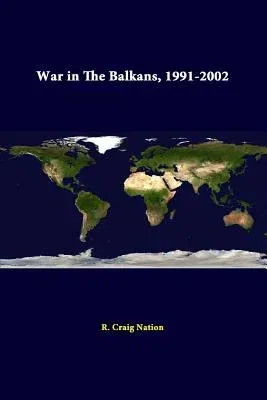R Craig Nation
(Author)War In The Balkans, 1991-2002Paperback, 8 July 2014

Qty
1
Turbo
Ships in 2 - 3 days
In Stock
Free Delivery
Cash on Delivery
15 Days
Free Returns
Secure Checkout
Print Length
406 pages
Language
English
Publisher
Lulu.com
Date Published
8 Jul 2014
ISBN-10
1312339756
ISBN-13
9781312339750
Description
Product Details
Book Format:
Paperback
Country of Origin:
US
Date Published:
8 July 2014
Dimensions:
22.86 x
15.24 x
2.29 cm
ISBN-10:
1312339756
ISBN-13:
9781312339750
Language:
English
Location:
Morrisville
Pages:
406
Publisher:
Weight:
594.21 gm

